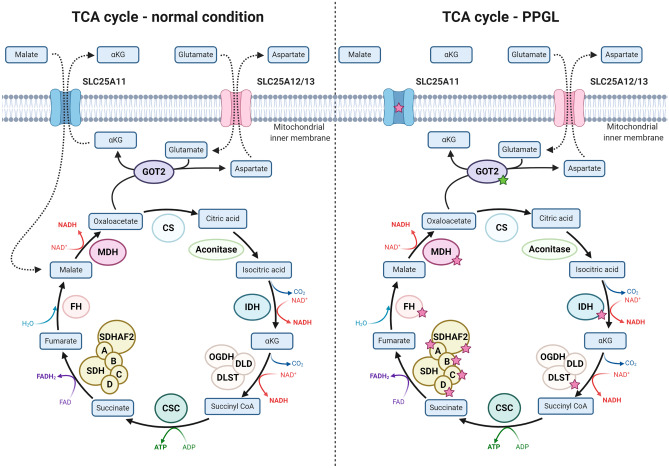Fig. 4.
Tricarboxylic acid (TCA) cycle dysregulation in PPGLs. In normal circumstances, the TCA cycle is an orchestrated chain of events propelled by a number of key enzymes, in which energy is extracted through the oxidation of acetyl-CoA. Each step of the TCA cycle is tightly regulated by enzymes, of which the majority can be inactivated through gene mutations (red stars) in PPGLs. These events are thought to cause an accumulation of key metabolites, in turn affecting other cellular processes reviewed in upcoming figures. Mutations in isocitrate dehydrogenase (IDH), the α-ketoglutarate dehydrogenase subunit dihydrolipoamide s-succinyltransferase (DLST), succinate dehydrogenase complex flavoprotein subunits A, B, C, D and succinate dehydrogenase complex assembly factor 2 (SDHAF2), fumarate hydratase (FH) and malate dehydrogenase (MDH) have all been reported on either the somatic or germline level in PPGL. Moreover, gene mutations involving transporter molecules responsible for the shuttling of malate and α-ketoglutarate (SLC25A11), as well as activating mutations (green star) in genes catalyzing the conversion of glutamate to α-ketoglutarate (GOT2), are also reported

